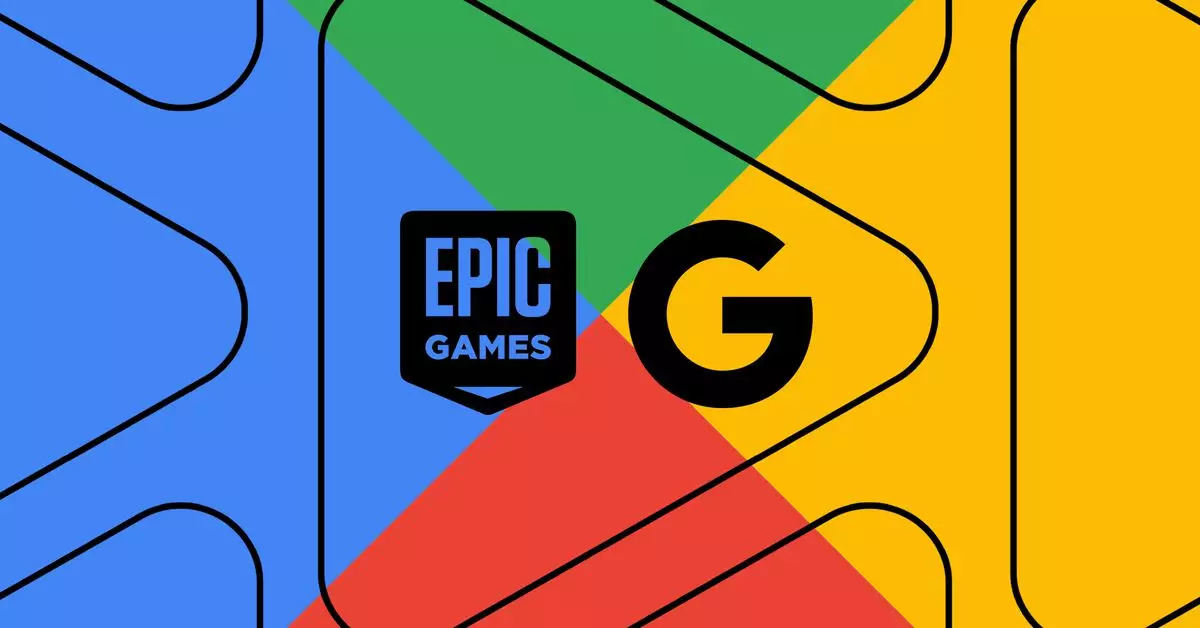The mobile gaming landscape is undergoing significant changes, with traditional app distribution methods facing robust challenges from emerging platforms. Among the players in this shifting arena, Telefónica, one of the world’s leading telecommunications carriers, has announced its intention to preinstall the Epic Games Store on every compatible Android device it sells, including flagship phones from Samsung. This unprecedented move marks the first time the Epic Games Store will appear preinstalled on consumer smartphones, reflecting a potential turning point in the battle against existing app store monopolies, particularly that of Google Play.
The Context of Competition
The collaboration between Telefónica and Epic Games comes in the wake of recent legal victories for the latter. In December, a federal jury ruled in favor of Epic Games in a landmark case against Google, which accused the tech giant of maintaining a monopoly over its Android app store and significantly influencing the app distribution ecosystem. Epic’s contention was that Google employed various tactics, including payments and restrictions, to prevent other app stores and platforms like Fortnite from establishing a foothold on Android devices. This ruling not only vindicates Epic’s claims but also sets a precedent that may embolden other companies to challenge Google’s dominance in the app marketplace.
As phones equipped with the Epic Games Store begin to enter circulation, it raises crucial considerations about user choice and access to alternative applications. Users accustomed to Google Play may now find themselves exposed to a rival digital storefront, potentially altering their gaming experience and buying habits.
Telefónica’s venture into installing the Epic Games Store is not entirely unprecedented; the carrier has previously collaborated with Epic to integrate Fortnite purchasing options into its Movistar services in Spain. This initial partnership allowed customers to append their Fortnite expenses directly to their mobile bills, significantly easing the payment process for gamers. The continued relationship with Epic signals a strategic positioning by Telefónica to offer more value to its customers, particularly those who are passionate about mobile gaming.
Despite this partnership, it remains to be scrutinized how Samsung perceives this collaboration, especially given potential tensions following Epic’s recent lawsuit against the tech giant. The outcomes of these legal disputes could influence future alliances and market dynamics in mobile software distribution.
The Broader Implications for the App Market
Epic’s ambition of establishing the Epic Games Store as a formidable competitor to Google Play aligns with a larger movement in the tech industry advocating for greater transparency and fairness in app distribution. The integration of the Epic Games Store into new smartphones reflects growing consumer demand for alternatives to major app stores, which have faced criticism for imposing high fees and restrictive practices.
For gamers, having access to the Epic Games Store on their mobile devices could provide a broader selection of games and potentially better pricing structures, thanks to Epic’s emphasis on cutting developer commissions. This shift to a more diversified app ecosystem could catalyze healthier competition, benefitting developers and consumers alike.
While the preinstallation of the Epic Games Store is a promising development, the road ahead is fraught with challenges. The rapid expansion of an alternative app store does not guarantee immediate success; user adoption, interface usability, content availability, and resolving potential operational hurdles regarding app performance across different devices will play critical roles in determining its viability.
Moreover, the legal ramifications and potential responses from Google and other industry giants could reshape competitive strategies in the mobile app landscape. As regulatory bodies continue to examine the implications of monopolistic behaviors in the app market, companies like Epic and Telefónica may find themselves at the forefront of a broader restructuring effort designed to restore balance in the digital marketplace.
The partnership between Telefónica and Epic Games signifies a bold step toward redefining the mobile app ecosystem. As alternative app stores gain traction, the future landscape of mobile gaming may shift, providing new opportunities and choices for consumers while challenging the status quo of existing market powers.

